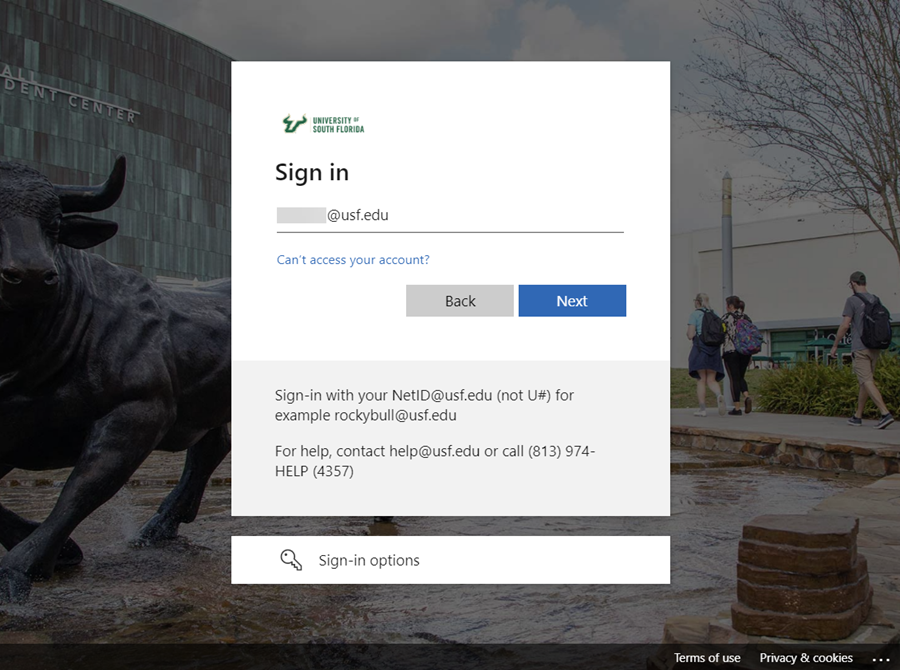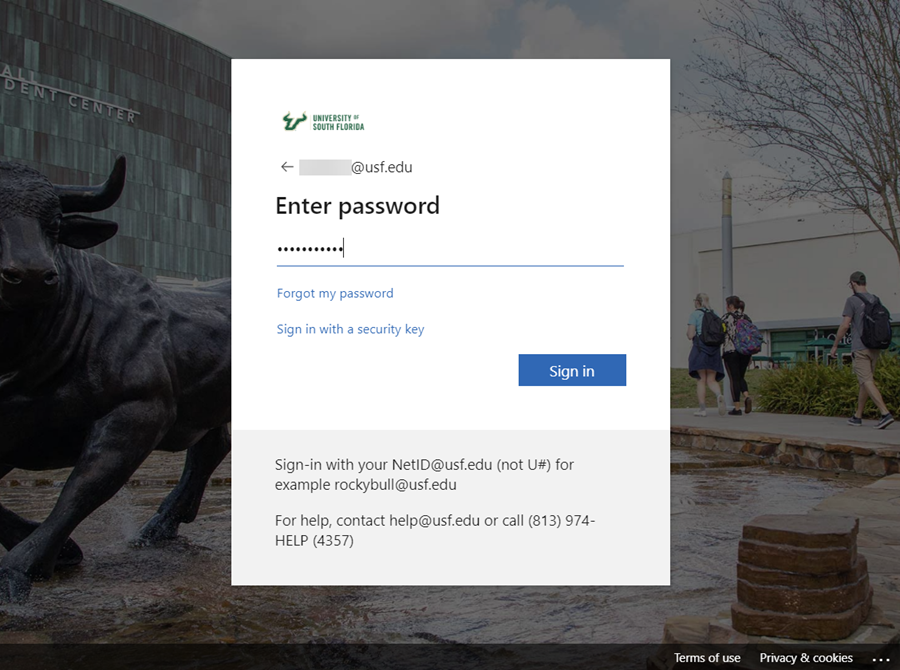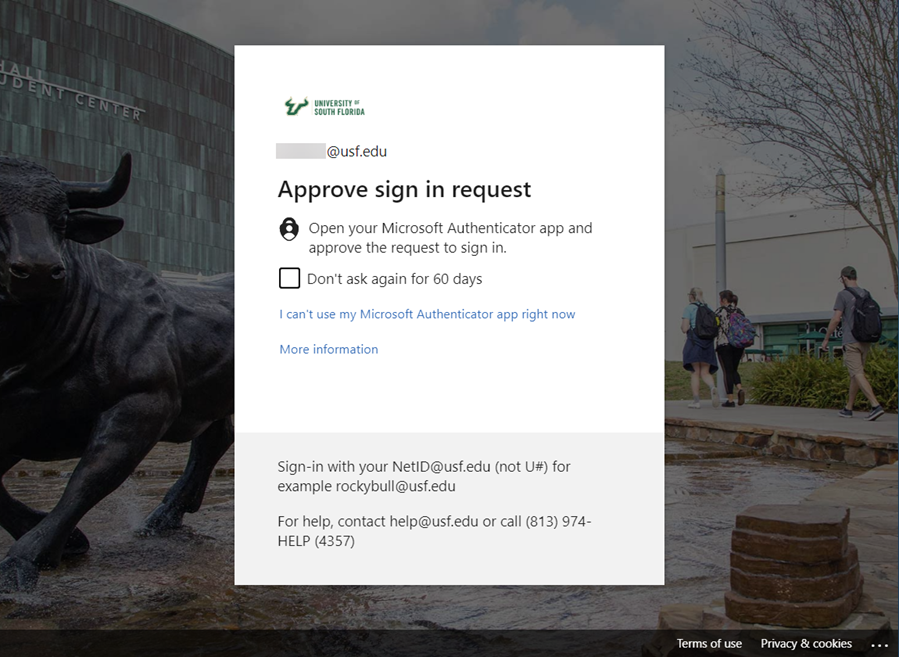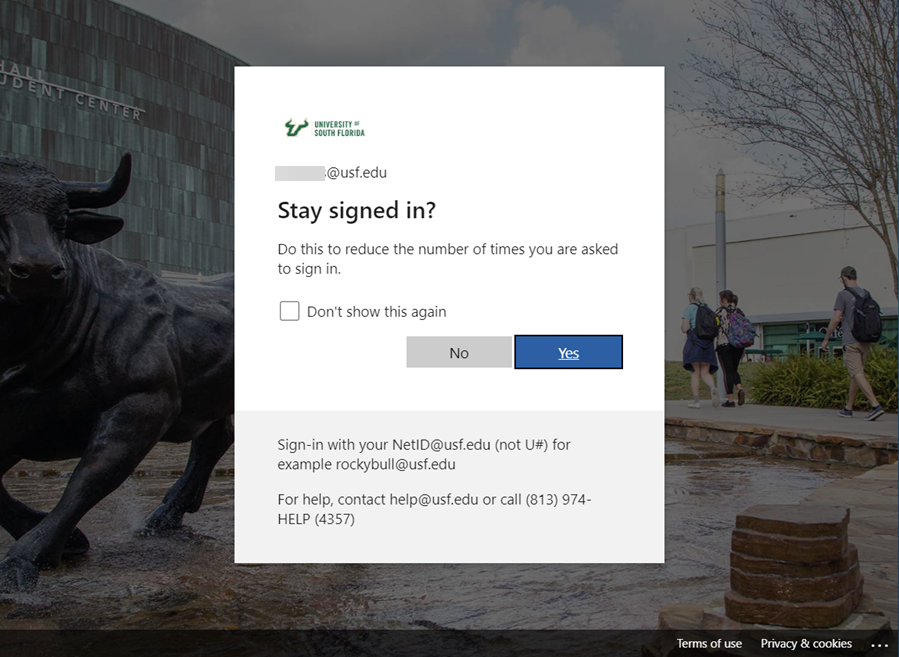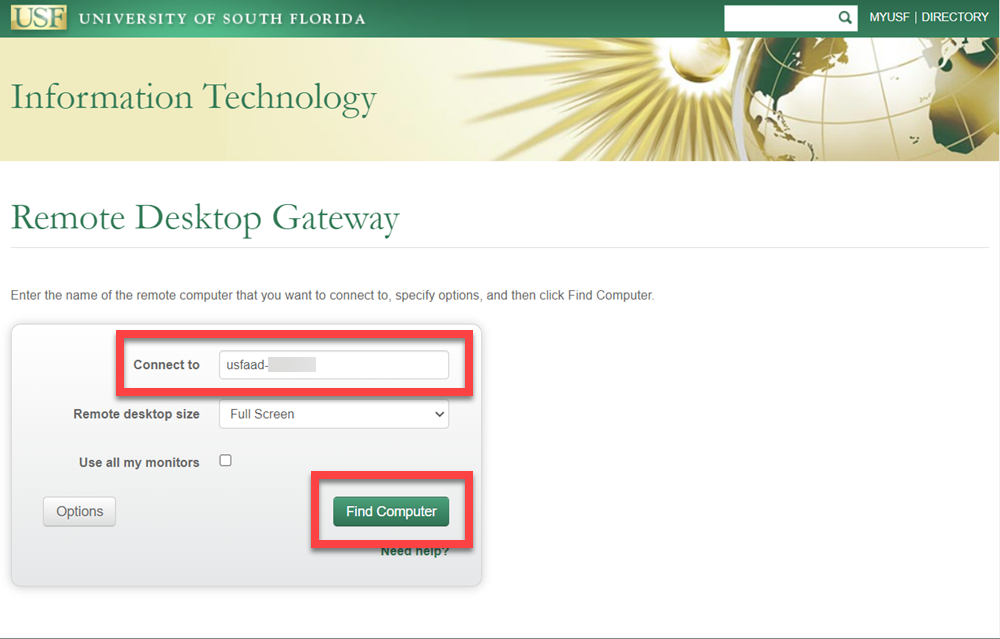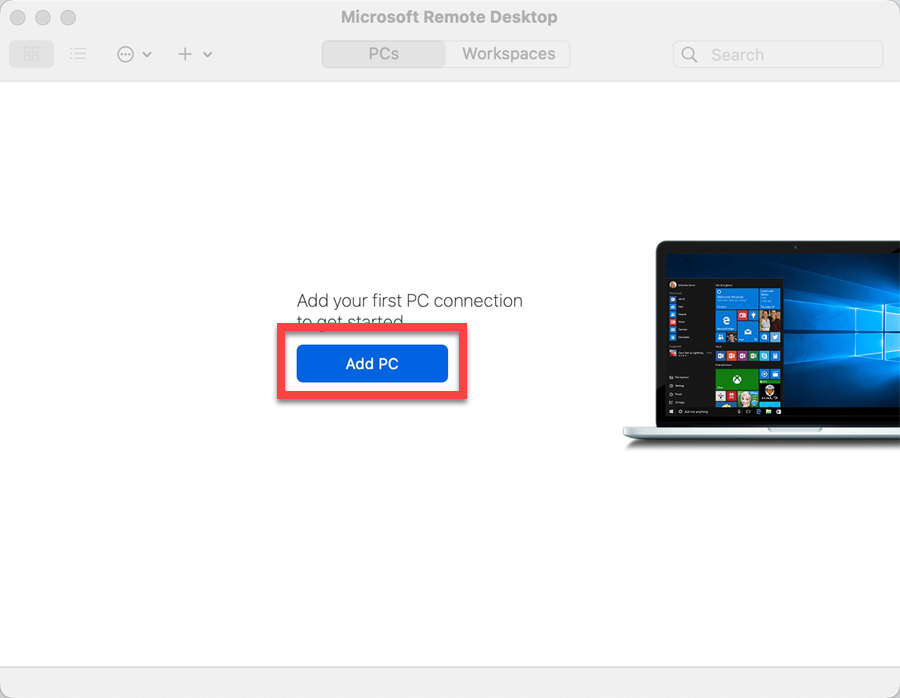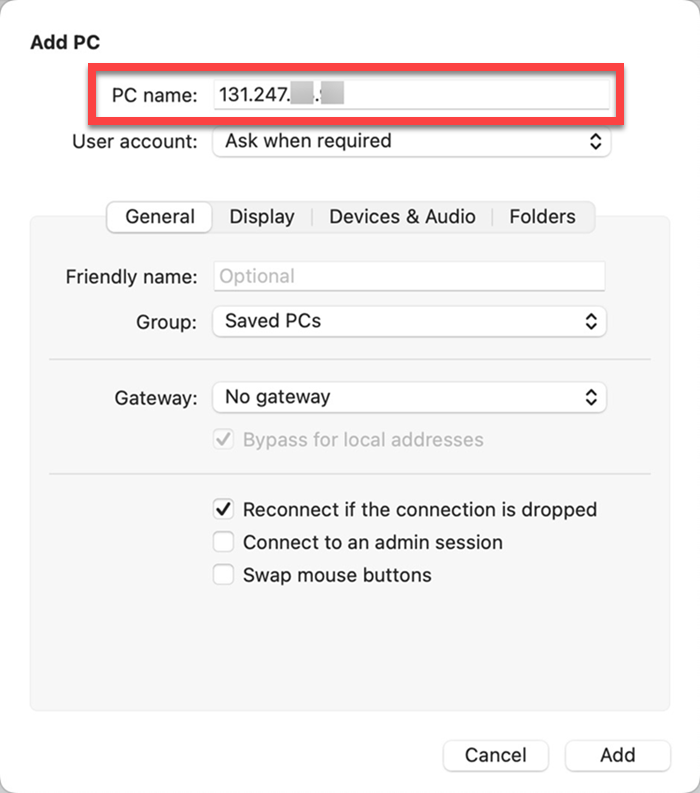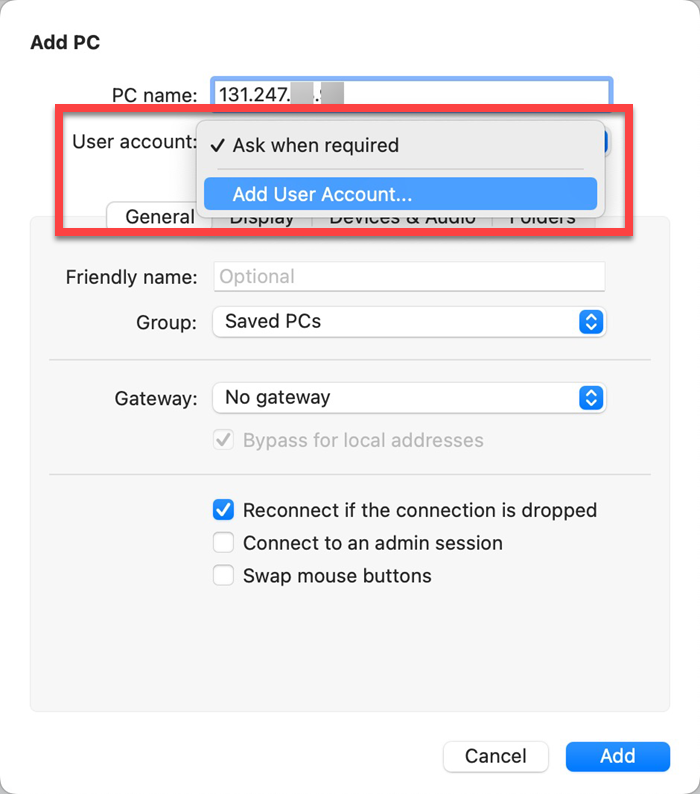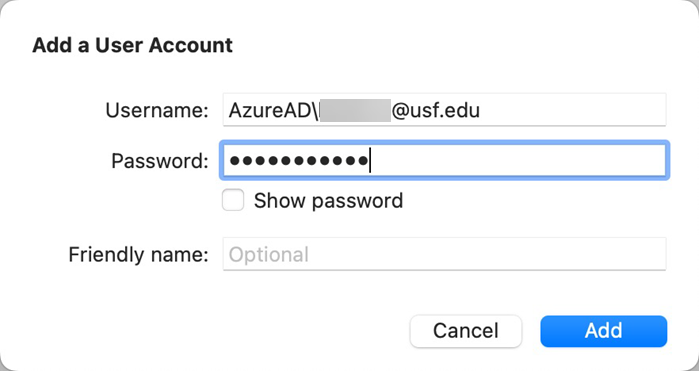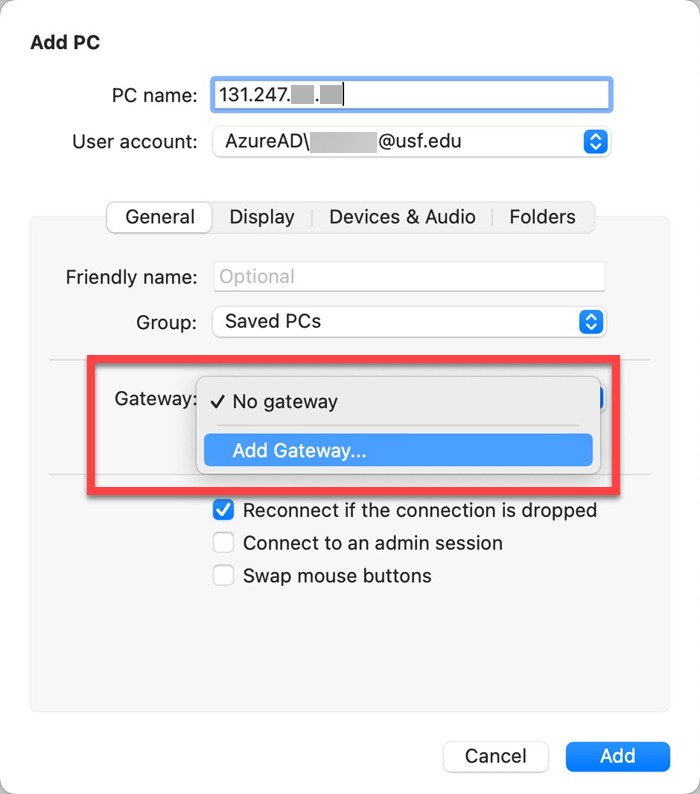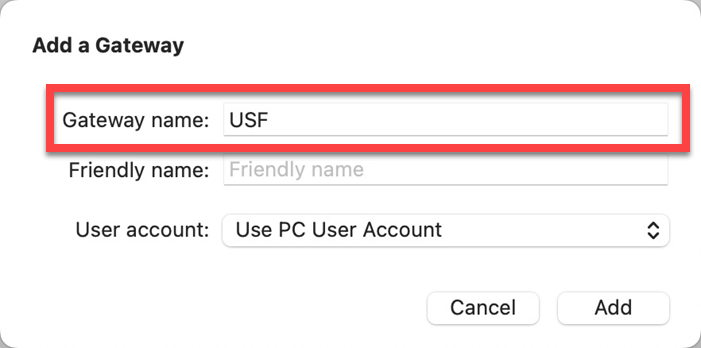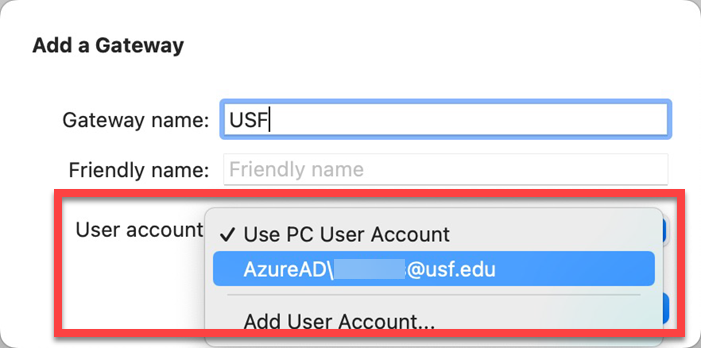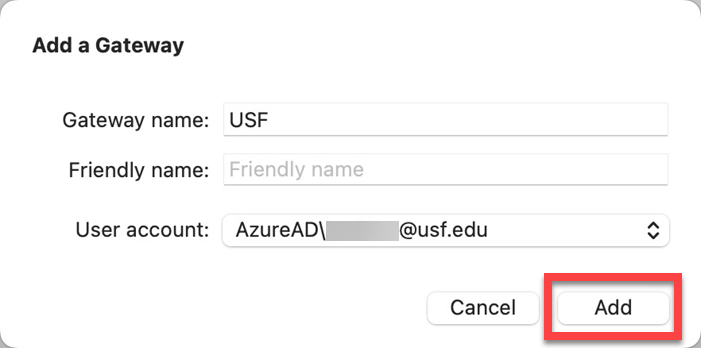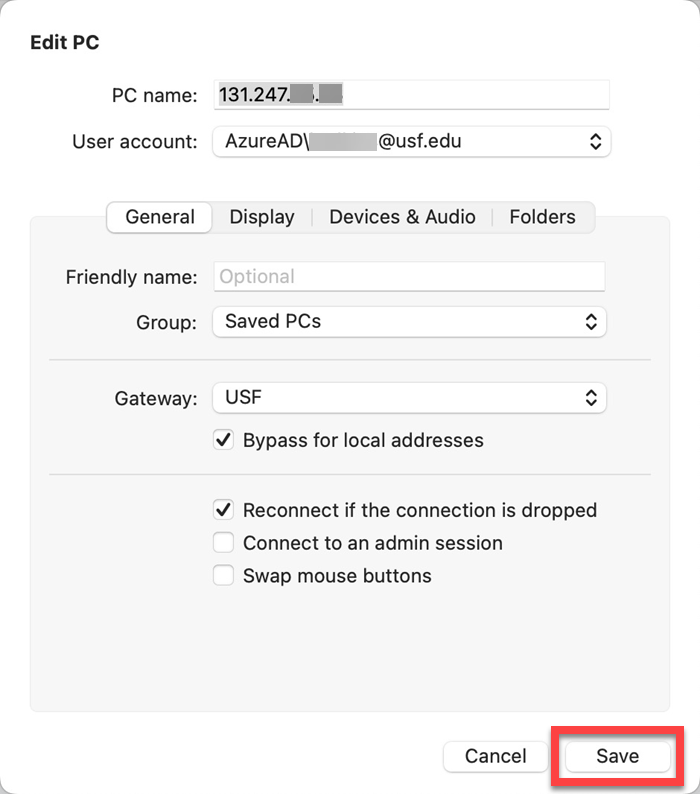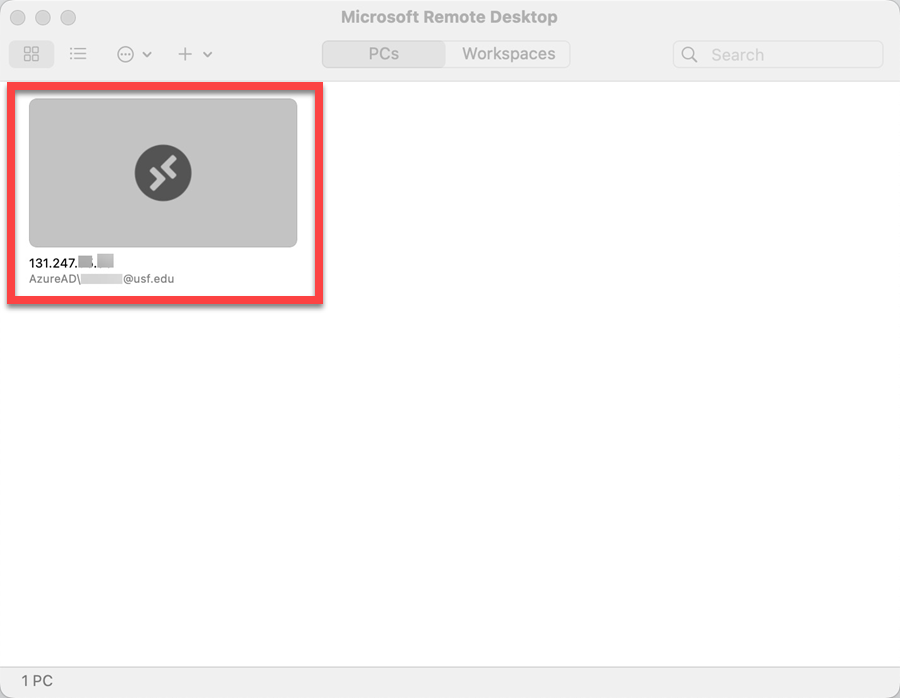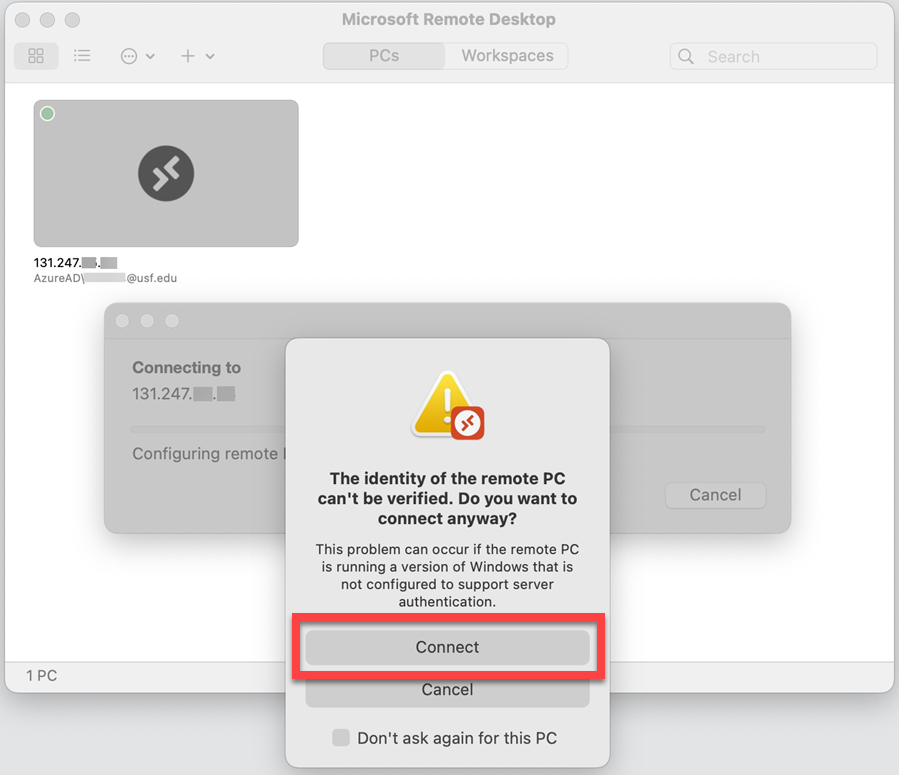| Excerpt |
|---|
Overview
The Remote Desktop Gateway (RDG) is used to access your OverviewYou, currently, can use one of two methods to connect to an on-campus Windows computer from another remote computer.
These methods provide additional security for
the connections with university computing resources.
| Warning |
|---|
| The computer you are connecting to must be running Windows 7 or above; you cannot use RDG to connect to a Mac, though you can connect from a Mac. |
Requirements and Setup
Checking your user group
Your account must be in the destination computer’s Administrators or Remote Desktop Users groups.
- Hit the Windows key on your keyboard (Note: on Windows 10 click on the circle icon next to the Windows icon on your task bar)
- Type lusrmgr.msc into the search bar
- Hit the Enter key on your keyboard
- Click on the Groups folder on the left
- Double click on Administrators in the center column (pictured below)
A new window should pop up
 Image Removed
Image Removed
(Click image below) - Look for you profile in the pop up
- Double click Remote Desktop Users in the center column (pictured below)
A new window should pop up
 Image Removed
Image Removed
(Click image to enlarge) - Look for your profile in the pop up
| Note |
|---|
Found your profile under either Administrators or Remote Desktop Users? Continue through the instructions. Can't find your profile under either Administrators or Remote Desktop Users? Contact us at help@usf.edu and we will add you. |
Back to top
Finding your computer's name
| Info |
|---|
| icon | false |
|---|
| title | Table of Content |
|---|
|
|
| Excerpt |
|---|
| Warning |
|---|
You must be connected to the USF VPN in order to remote connect to any device no matter the method. For information on how to download, install, and setup the VPN, please visit VPN - Palo Alto GlobalProtect. |
| Warning |
|---|
If your job duties require you to use a remote access solution, please contact the USF IT Service Desk while on campus and in front of the machine you will be connecting to for setup and configuration. Please call 813-974-4357 or visit https://itchat.usf.edu to have the setup and configuration done for you. |
Finding your USF computer's informationYou will need to know the USF computer’s name |
In Windows 7:
- Hit the Windows key on your keyboard
- Type computer name in the search field that comes up
- Hit the Enter button on your keyboard
- Click See the name of this computer.
The name is displayed in the Full Computer Name field
In Windows 8:
Hit the Windows key on your keyboard Type computerRight-click on This PC Select PropertiesThe name is displayed in the PC name field. In Windows 10:
- Click on the circle icon, next to the Windows icon, on your task bar
- Type computer name into the search bar
- Hit the Enter key on your keyboard
- Click View your PC name
The name is displayed in the PC name field
Back to top
Connecting
| Note |
|---|
- Make sure your browser (Chrome, Firefox, Microsoft Edge) is the most recent version.
- The computer you are logging in remotely from must have an up-to-date version of Microsoft's Remote Desktop Connection, which is automatically installed on Windows 7 and later.
- Macs with OSX 10.7 or later can get this app from the App Store, see the Mac instructions below.
|
Windows
Go and IP address in order to be able to remote into it from another location. Windows 10/11 - Select the Windows logo in the lower left.
 Image Added Image Added
- Type CMD to search for Command Prompt and select Open.
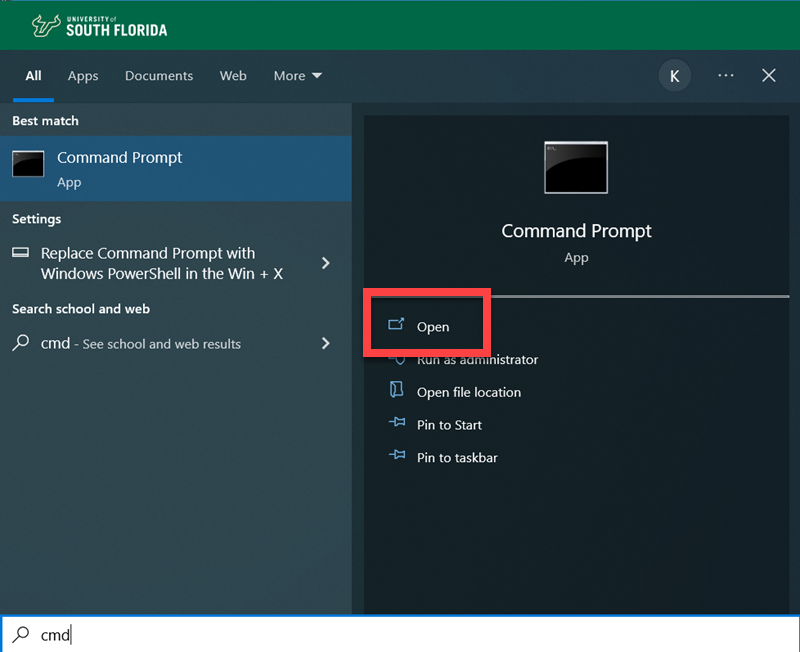 Image Added Image Added
- Type ipconfig /all and hit enter.
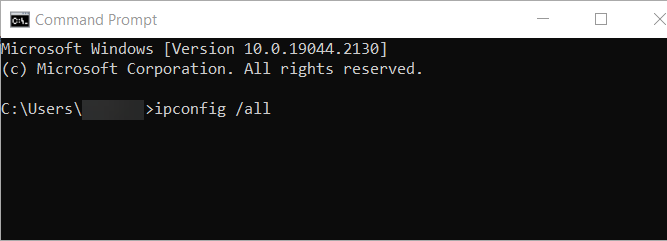 Image Added Image Added
- The computer name will be listed as Host Name and the IP address will be listed as IPv4 Address and should start with 131.247.
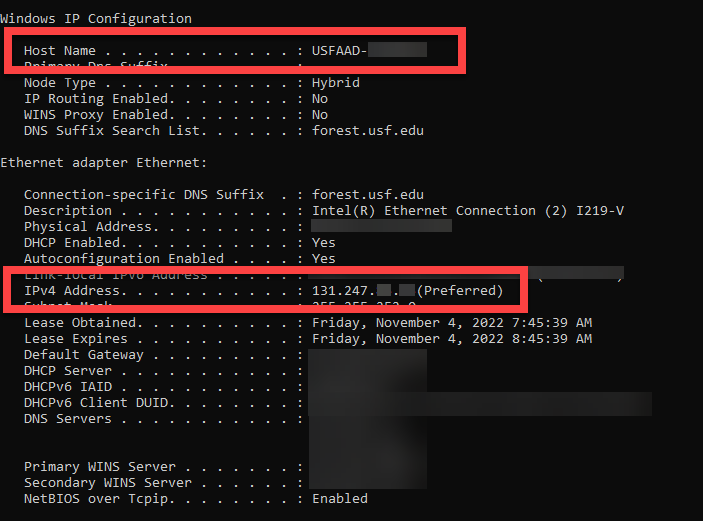 Image Added Image Added
Connecting from a Remote Computer| Note |
|---|
Once the USF IT Service Desk has configured your machine for Remote access, follow the below directions to establish a remote connection. |
| Warning |
|---|
If remoting into a recently deployed device using IT's Modern Endpoint Management, you will need to first log into VPN.usf.edu |
WindowsRemote Desktop Connection- Select the Windows logo in the lower left.
 Image Added Image Added
- Type Remote Desktop Connection to search for the program and select Open.
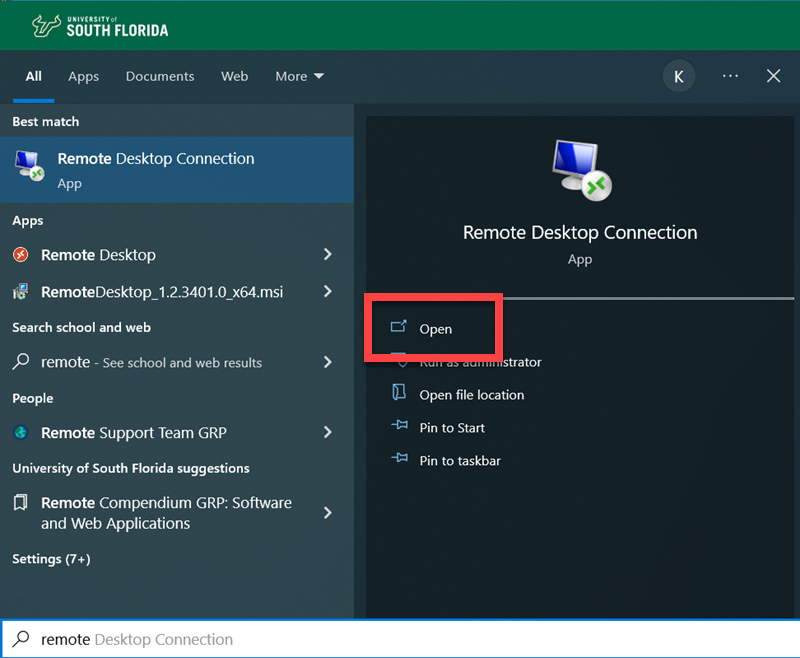 Image Added Image Added
- Enter the on-campus computer's IP address under Computer.
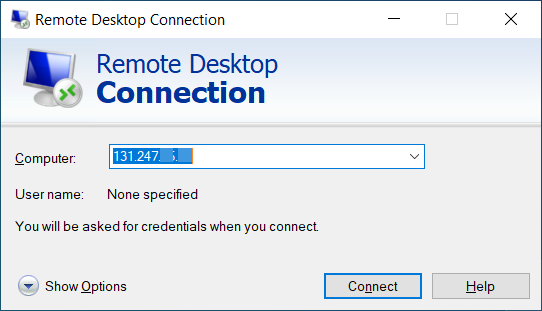 Image Added Image Added
- Select Yes to connect to the on-campus computer.
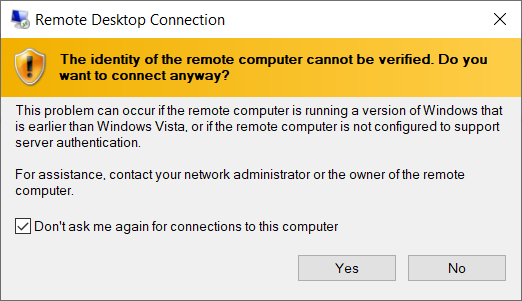 Image Added Image Added
- Enter your USF email address and password as you normally do to sign into the computer.
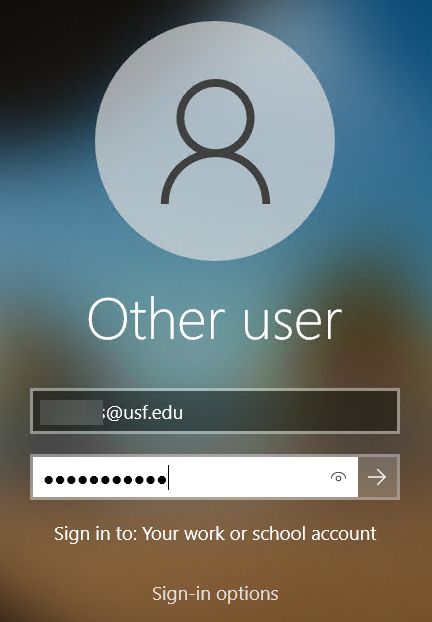 Image Added Image Added
Remote Desktop Gateway- Navigate to http://usfweb.usf.edu/remote/
|
Enter the computer name or IP address you wish to connect to (pictured below)
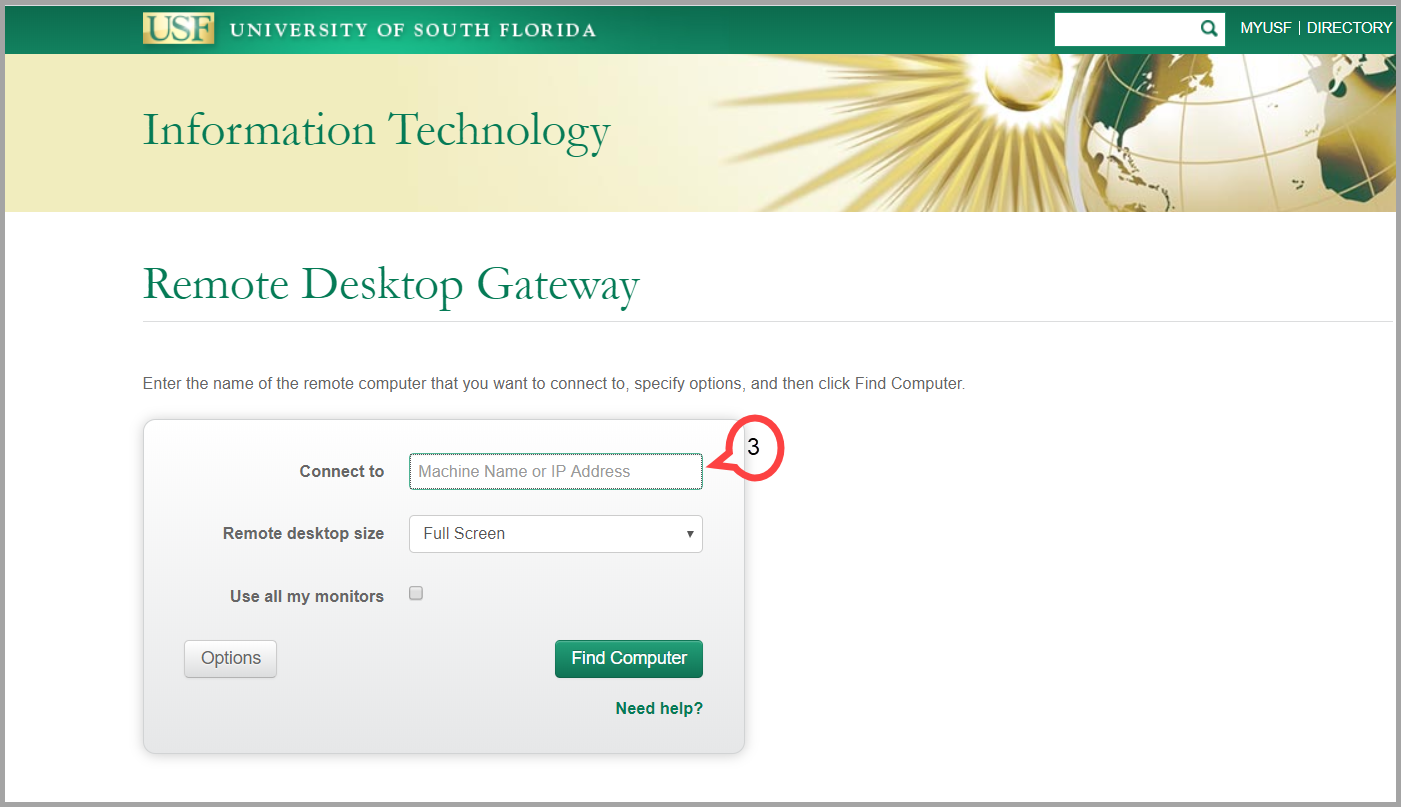 Image Removed
Image Removed
(Click image to enlarge)Choose your remote desktop size
Click the Find Computer button
Click the Connect button
- Select Connect once the check is completed successfully. RDG will download a ‘USFRemoteAccess.rdp’ file.
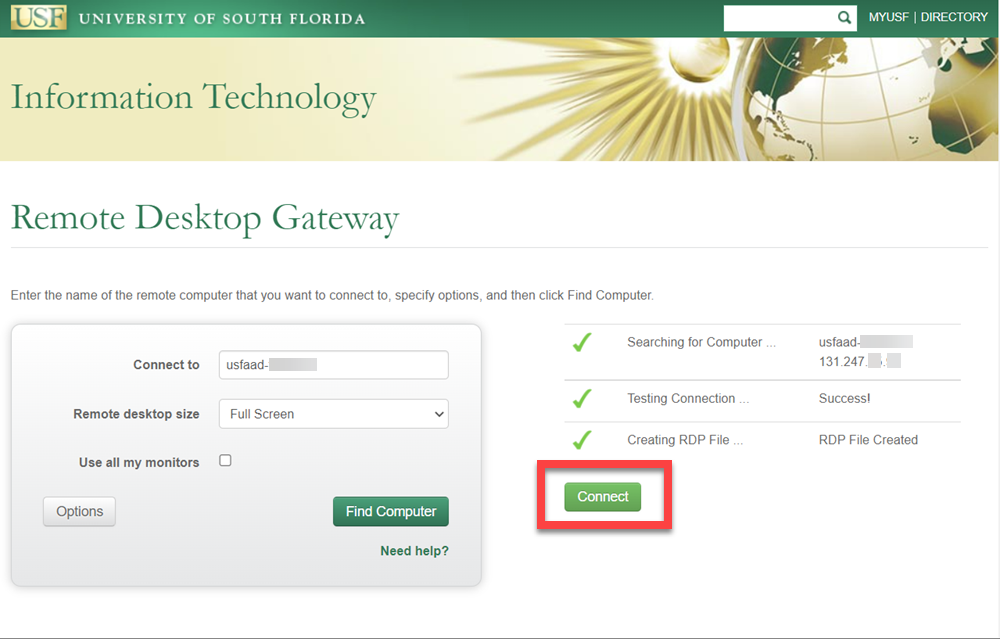 Image Added Image Added
|
Open the USFRemoteAccess.rdp
|
| Tip |
|---|
Using dual-factor authentication on your computer? You will be prompted to authenticate.file. | Tip |
|---|
| Security window popped up? Click Connect |
|
Log in with your credentials
You are logging into your destination computer
- Enter your USF email address and password as you normally do to sign into the computer.
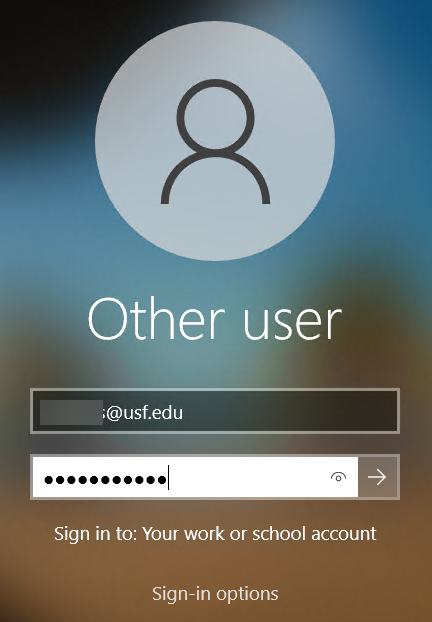 Image Added Image Added
Once you have completed this process, you will have a window to your destination computer and may use it as if you were sitting in front of it. |
When you are finished, you can simply log out of your remote computer and the window will close. Back to top Mac| Warning |
|---|
If you are using a Macintosh computer from home to connect to your newly deployed PC on campus, you must contact USF IT Remote Support to have a configuration adjustment made to your work system. This must be done on campus while logged into the newly deployed machine. Please call 813-974-4357 or visit itchat.usf.edu to have this work done for you. |
| Info |
|---|
| Already have the Microsoft Remote Desktop app? Skip to Step 5 |
- Launch the App Store
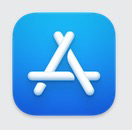 Image Added Image Added
- Search for the Microsoft Remote Desktop
|
Click on Microsoft Remote Desktop| Anchor |
|---|
Top | Top | | Info |
|---|
| icon | false |
|---|
| title | Table of Contents |
|---|
|
| Table of Contents |
|---|
minLevel | 2- and select GET.
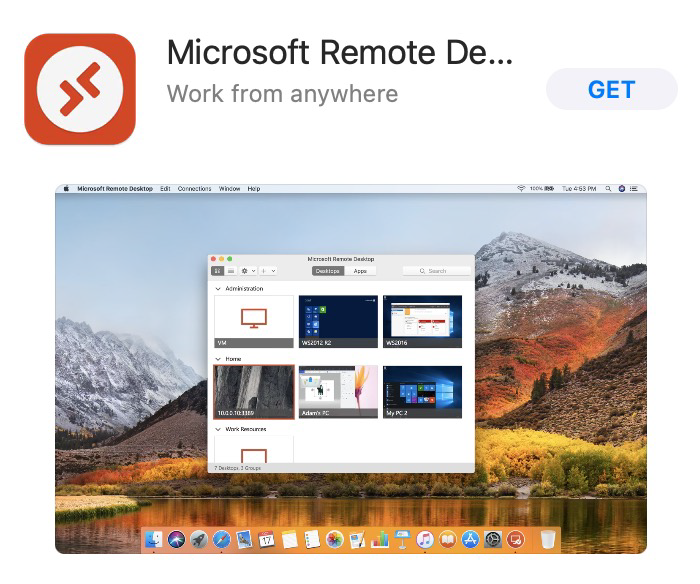 Image Added Image Added
- Enter your credentials for your Apple account
- Launch Microsoft Remote Desktop
|
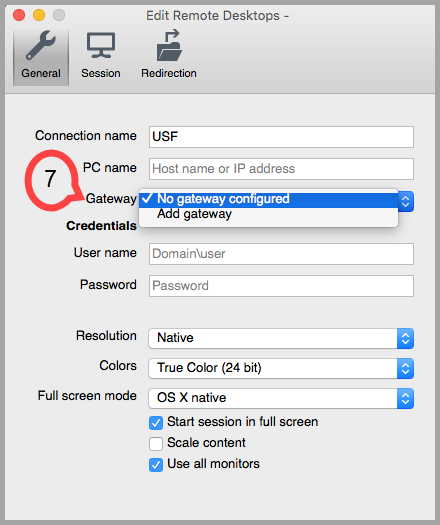 Image Removed
Image Removed
(Click image to enlarge)Click on the Plus sign to add a gateway:Fill out the following fields (Pictured below)
- Gateway Name = USF
Server = rdg.usf.edu
User name = Your USF email
- Password = Your NetID password
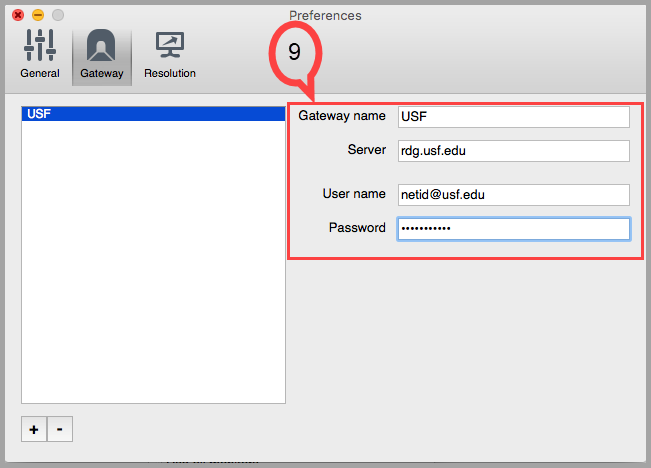 Image Removed
Image Removed
(Click image to enlarge)Close the Preferences screenChoose USF from the Gateway drop down menu Enter your email address and password under CredentialsEnter your computer name in the PC Name fieldClose out of the Edit Remote Desktops screenClick on USF under My Desktops (pictured below)
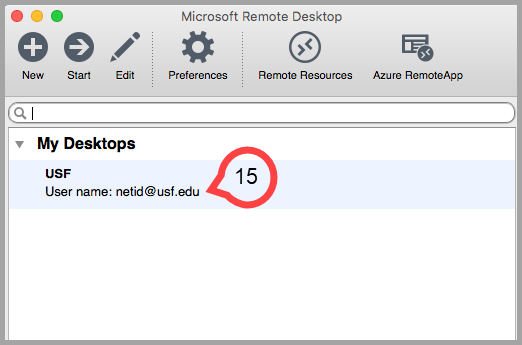 Image Removed
Image Removed
(Click image to enlarge)Click on Continue
You will be connectedBack to top
IPad
| Info |
|---|
|
Already have the Microsoft Remote Desktop app? Skip to Step 5 |
Tap on the App Store Search Microsoft Remote DesktopTap on Get Tap on Install | Anchor |
|---|
OpenApp | OpenApp | Open the Microsoft Remote Desktop appTap the Plus sign (pictured below)
 Image Removed
Image Removed
(Click image to enlarge)Tap DesktopTap PC NameEnter your computer's name (pictured below)
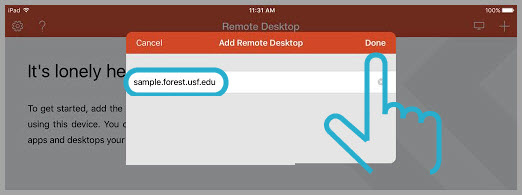 Image Removed
Image Removed
(Click image to enlarge)Tap DoneTap the panel on the Remote Desktop main menuEnter the credential you use on your machine
| Tip |
|---|
Tapping the controls at the top will allow you to zoom, switch between mouse pointer and touch functionality, bring up a keyboard, etc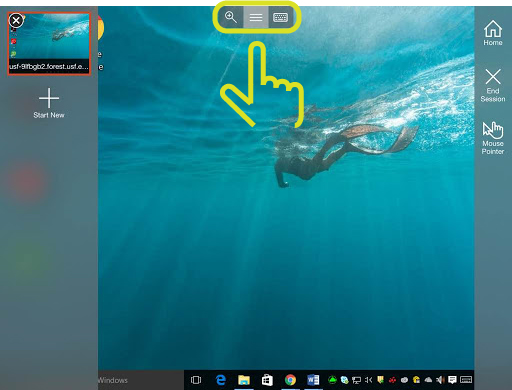 Image Removed Image Removed |
| Insert excerpt |
|---|
| SM:DocTeam Banner |
|---|
| SM:DocTeam Banner |
|---|
| nopanel | true |
|---|
|












